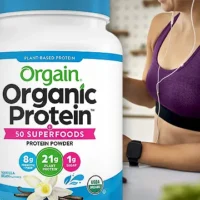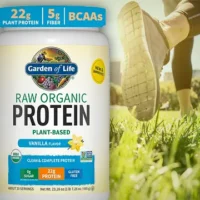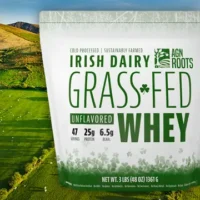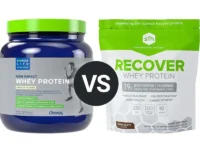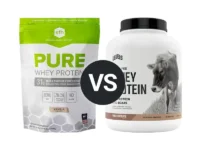Knowledge BaseYou're Questions Answered
Why do people choose non-GMO protein powders?
Non-GMO (genetically modified organism) protein powders have become increasingly popular among health-conscious individuals who prefer to consume natural, minimally processed foods. The main reason people choose non-GMO protein powders is because they want to avoid consuming genetically modified ingredients, which may have unknown long-term health effects. Additionally, some people may choose non-GMO protein powders for environmental and ethical reasons, as the production of genetically modified crops can have negative impacts on soil health, biodiversity, and farmers' livelihoods.
While the safety of consuming genetically modified foods is still debated, some studies suggest that GMOs may be linked to a variety of health concerns, including increased risk of allergies, toxicity, and antibiotic resistance (1, 2). However, other studies have found no evidence of harm (3, 4).
It is important to note that the term "non-GMO" refers only to the absence of genetically modified ingredients, and does not necessarily indicate whether a product is organic or free of pesticides, herbicides, or other potentially harmful chemicals. Therefore, consumers should carefully read labels and do their research to ensure that they are purchasing high-quality, safe protein powders.
- Mesnage R, Antoniou MN. Facts and Fallacies in the Debate on Glyphosate Toxicity. Front Public Health. 2017;5:316. doi: 10.3389/fpubh.2017.00316.
- Sánchez MA, Candela M, Roca M. The effects of genetically modified foods on animal health. The case of Bt corn. Trends Food Sci Technol. 2009;20(6-7):237-44. doi: 10.1016/j.tifs.2009.03.007.
- National Academies of Sciences, Engineering, and Medicine. Genetically Engineered Crops: Experiences and Prospects. Washington, DC: The National Academies Press; 2016.
- Nicolia A, Manzo A, Veronesi F, Rosellini D. An overview of the last 10 years of genetically engineered crop safety research. Crit Rev Biotechnol. 2014;34(1):77-88. doi: 10.3109/07388551.2013.823595.
Related Questions
Related Reviews
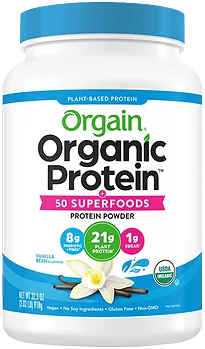
Your Answer
We are a participant in the Amazon Services LLC Associates Program, an affiliate advertising program designed to provide a means for us to earn fees by linking to Amazon.com and affiliated sites.
